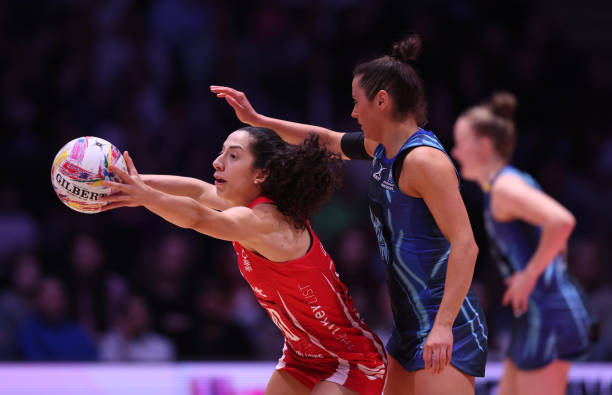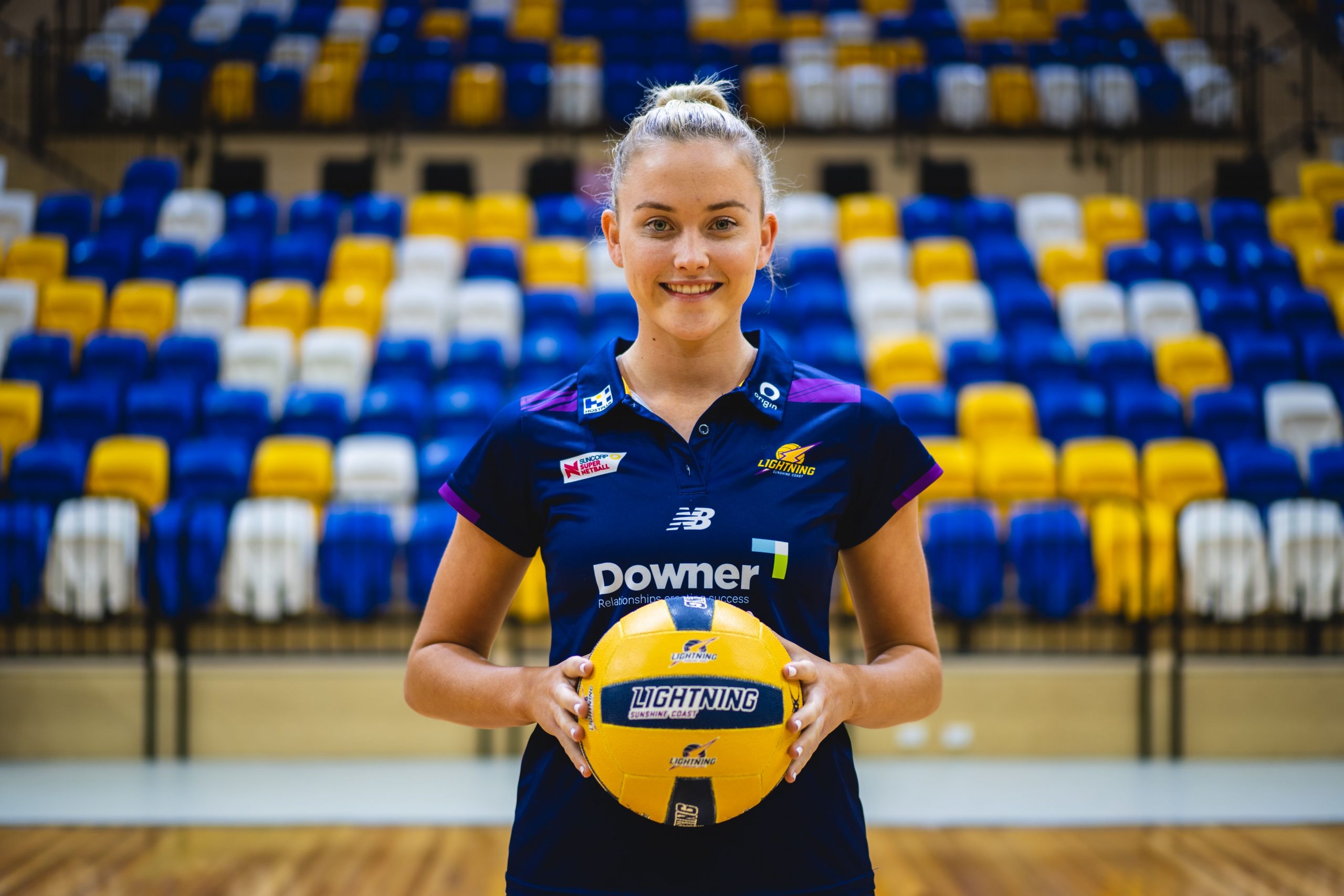NZ Silver Ferns/Aotearoa Men’s Cadbury Netball Series: Talking points

IT is safe to say the Cadbury Netball Series between New Zealand Silver Ferns and Aotearoa Men’s has been a huge success, with the three matches providing serious entertainment value and showcasing the excellent development pathways that New Zealand netball has to offer. While the Ferns took home two of the three matches and the trophy, both teams came away from the series with plenty of learnings.
Difference in game style
While it may not be evident to the naked eye – or perhaps to the non-analyser – there are some significant differences between the way the women’s and men’s games are played. With netball being a traditionally female-based sport, one of the more obvious differences is the experience level, with many picking up the sport as children, compared to the men’s game where many come from a basketball background – but not all, such as Aotearoa Men’s debutant Josh Eriata Vercoe. While both the Ferns and Men’s squads in this series tended to favour the strong, two-handed pass, the Men’s team used a lot of long, looping passes, unafraid to use their athleticism and height to put the ball up in the air and inject some flair into the game. The Ferns showcased their flair in a different way, using netball smarts and excellent footwork to make up the extra height, outclassing across the court with their instinct and anticipation. While talent gets you far on a netball court, netball instinct cannot be taught the way that rules can and proved to be the real difference in this series. That being said, there is no doubt the high-flying style of play the Men’s team produced across the three matches proved how many ways the game can be played and proved successful on two occasions, despite only winning one game, with the composed and collected Fern game winning them the trophy.
Adaptability is key
Where consistent starting sevens have been a trend in international netball over the past few years, we are seeing more and more cases of teams opting for a rotating seven with impact players and endurance-based players to boot. Intriguingly, both coaches went about this in different ways, with Men’s coach David Pala’amo rotating on a needs basis, while Dame Noeline Taurua operated on a different wavelength all together, varying her players and game style dependant on the scenario and showcasing just how much of an impact a rotating seven can have. While the Men’s team typically stuck to the same seven for majority of their matches, the Ferns utilised their star-studded bench to its full potential, with Shannon Saunders in particular showcasing her ability to play both an impact role or and endurance role, and seeing the Ferns come out the better for it.
Similarly, both sides showcased an ability to adapt on the fly, realistically something the two coaches should be congratulated for. While injuries and missing players plagued both squads in the lead-up, both Taurua and Pala’amo showed remarkable leadership and composure courtside, corralling their respective teams to pick up the pace and work hard. Forced changes were the real test across the three matches, showcasing the high-pressure moments and which players would be able to stand up, while indicators such as penalty counts also indicate the pressure points, with the Ferns’ cleanliness in the first game showcased by their 27 penalties to the Men’s 52. The Men’s stayed relatively similar to that count across the remaining two games with 47 and 53 penalties, but also fired up the pressure to force the Ferns to diverge from their clean game, registering 47 penalties in the second game and 45 in the third as the Men’s team took control. The Ferns registered less turnovers per match, averaging 18 each game which effectively shows where the series was won, adapting to each game and wasting less turnover ball than the Men’s team which averaged 24 turnovers per game.
Mixed bag of top performers showcases the closeness of the contests
There is no doubt the talent on show across the series was outstanding, with the development of the Men’s team not only across the three matches, but also the three years, coming to light, while the new connections within the Silver Ferns camp were just as impressive as young talent took their chances. The dynamic and consistent combination of Kelly Jury and Karin Burger is sure to provide headaches come test time with the duo improving game on game, while the likes of Grace Nweke, Maia Wilson and Tiana Metuarau all made great cases for starting positions. Maddy Gordon continued where she left off during the 2021 ANZ Premiership season, rarely looking out of her depth, while Gina Crampton settled in well in her captaincy role. Men’s goal shooter Jay Geldard and goal keeper Victor Godsmark-White both showcased what they are capable of with remarkably consistent form across the three matches, while Nick Grimmer held strong in centre and the likes of Dallas Harema and Vercoe played great impact roles.
Burger took out player of the match honours during the first clash, credit to her high impact game which consisted of four gains (three intercepts, three deflections, two pickups) and just six penalties, while also not registering a turnover proving her explosiveness did not counter her cleanliness and reliability with ball in hand. Geldard’s accuracy and impact was noted in the second game, winning player of the match off the back of a 100 per cent 44-goal performance, despite the Men’s team losing by one goal, also picking off two rebounds and just one turnover to his name in an impressive effort. The third game’s player of the match award went to Godsmark-White who put on a clinic in the back-end for the Men’s, saving his best to last and registering just one turnover and six gains (one intercept, two deflections, two rebounds and a pickup) in a remarkable, high-impact outing.
New Zealand leads the way in actively supporting and growing men’s netball
While men’s and mixed netball is growing more and more popular around the world, there is no doubt Netball New Zealand is leading the pack with the creation of opportunities such as the Cadbury Netball Series. Certainly, men’s and mixed netball is popular nation-wide in Australia at a lower level, while the England Knights Men’s have gained popularity in recent years and the Jamaican Men’s squad is set to play the Jamaican Sunshine Girls in an upcoming tournament, but realistically Netball New Zealand is the first national body to actively and continuously work with and promote the growth of the men’s (and mixed) game on a scale relative to the women’s game. With greater opportunity and exposure across the ditch, New Zealand could quickly become a hub for men’s netball with evident commercial support allowing it to grow at an impressive rate.
Despite a slight hiccup during the first match which inadvertently barred international viewers from the first half of the first game’s livestream, there is no doubt the benefit of newfound exposure of men’s – and mixed – netball on the international stage still outweighs the lack of commercial partnerships. With this series being the third of its kind, there is a greater following than ever of the men’s game, and with more recognisable figures in the industry – take commentator and player Kruze Tangira for example, as well as Dan Jefferies, who has played all three series against the Ferns and Junior Levi who continues to be a prominent spokesman for the sport in Australia – there is no doubt the only way is up when it comes to series of this kind and putting money behind men’s and mixed netball in the future.








